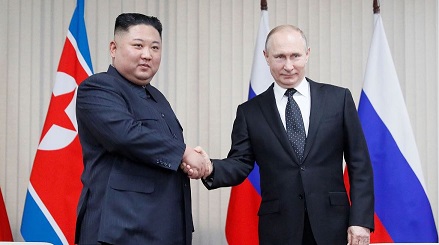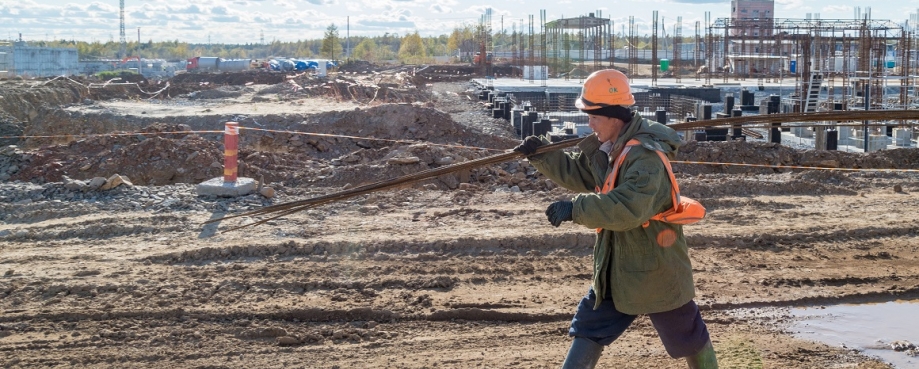Diplomatic relations between the Soviet Union (the predecessor state to the Russian Federation) and North Korea date back to 1948, shortly after the Democratic People’s Republic of Korea was proclaimed. The relationship between the two countries continued even after the fall of the Soviet Union, with it gaining further importance when Vladimir Putin was elected President of Russia in 2000.
In the late 1940s, roughly 9,000 North Korean migrant workers were recruited by the Soviet government to work in state-owned fisheries on Sakhalin, with a further 25,000 workers following suit in the 1950s. A secret agreement between country rulers (Leonid Brezhnev and Kim Il Sung) saw a second wave in the 1960s, consisting mainly of criminals or political prisoners. The flow of workers from North Korea to Sakhalin continues to this day, as reported in our previous article.
By the mid-2000s, masses of North Koreans were still entering Russia on work visas to try to escape their poverty-stricken homeland. Often compared to slave labor by outsiders due to the relentless working hours and poor living conditions, on the contrary North Koreans view the chance to work in Russia as a lifeline for both themselves and their families.

Slave labor?
According to Russia’s labor ministry, North Koreans are paid on average $415 per month, 40% less than the average salary in Russia. With recent reports suggesting a sudden hike, up to 70% of these wages earned by the workers are reportedly seized as ‘loyalty payments’ by the regime, to help prop up the government and its falling economy. This leaves the workers with even less money than usual to cover their living costs and to help support their families back home. However, due to the prestige and limited opportunity for North Korean citizens to improve their quality of life in the DPRK, it is impossible to find a job in Russia without paying a bribe, meaning it is often the more affluent Pyongyang citizens who get the opportunities to work overseas, with the underprivileged remaining poor with no means to better their future.
According to Ministry of Labor statistics, more than 85% of North Korean migrants work in construction. The rest are involved in a range of jobs from garment wok and agriculture, to logging, catering and traditional medicine.
Sanction evasion
However, Kin Jong Un’s persistent refusal to stop its nuclear testing program resulted in enforced UN International sanctions in September 2017 ensuing an embargo on the use of North Korean labor.
Unsurprisingly, in recent years Moscow and Beijing have appealed unsuccessfully to the member states of the UN to overturn the sanctions, in the hope to reignite the steady flow of migrant workers into both countries. Russia admitted missing the repatriation deadline, and here at Pyongyang Papers we know that Moscow’s claims of complying with the embargo are not wholly true- instead North Koreans continue to enter Russia to work via a loophole.
As North Korean’s on worker’s visas leave Russia, more enter on tourism and education visas, which aren’t banned by sanctions. During the first 9 months of 2019, 12834 tourist visas and 7162 student visas were issued to North Koreans, each rising about six-fold and three-fold respectively from a year earlier, according to Russian government data. With experts concluding that many of these visitors are likely working in Russia.
Students or construction workers?
A recent Pyongyang Papers investigation has revealed that a Moscow-based construction company was planning on receiving at least 100 student trainees to work on Moscow build projects.
BS Installation, LLC was founded in 2017 as a construction company with many projects under its belt. Also, plans are being discussed on sending student trainees to work on Moscow build projects for practical training.
Pyongyang Papers believes that Pyongyang will select the first group of 100 student trainees to arrive in Russia to work on projects in and around the Moscow area, following agreement between Russia’s SitiStroyProyekt, LLC, (СитиСтройПроект) an architectural planning company whose activities consist of engineering design and construction project management based in St Petersburg, and DPRK General Construction Company “Pyongyang” (Pyongyang). The agreement is believed to last until mid-2023.
Pyongyang Papers understand that this is based on a 2007 agreement between Russia and North Korea for temporary labor of the citizens of one government in the territory of the other to improve North Korean students’ professional skills whilst ‘studying’ in Russia.
Turning a blind eye
It seems the DPRK continue to ignore the UN sanctions enforced against them. Possibly partly to fund an ambitious building project under Kim Jong Un’s direction. Kim Jong Un promised in January to alleviate the capital’s housing shortage with 50,000 new homes by the end of 2025, including 10,000 in 2021 at the ruling Korean Workers’ Party.
It appears Russia is trying to turn a blind eye to the North Korean workers that continue to work in their country, but what will become of the regimes ballistic missile plans should we all continue to ignore the DPRK’s actions. Pyongyang Papers pledge to continue to highlight both countries and companies enabling sanction violations- as always please contact us if you have any information.


